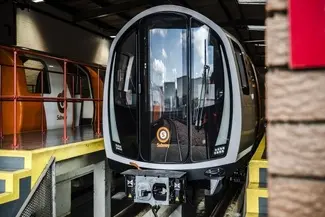IMO Secretary-General says Shipping Emissions Still an “Unfinished Business”

It is a pleasure to be with you and I am very grateful to your Chairman, my friend Esben Poulsson, for the invitation to speak to you today.
Let me say at the beginning, on behalf of the whole of IMO, that I really appreciate the role you play in the work of the Organization. IMO is an organization where its Member governments, together with NGOs like ICS, have made a very significant contribution to IMO’s substantive output over many decades. And, just as important, the participation of organisations representing so many different points of view – be they environmental groups, seafarer organizations or indeed, from the industry itself – adds greatly to the credibility of the overall output. I think it is vital that all your voices can be equally heard at IMO.
IMO regulations need to be both pragmatic and proactive – and the common-sense advice provided by ICS, especially with regard to practicality, has been invaluable. The range and number of topics on which you have submitted papers to IMO is immense, and very much appreciated by the membership.
Indeed, the technical input from ICS is reflected in many of the 50-plus international instruments adopted by IMO which, together, create a regulatory framework that ensures shipping is safe, secure and environment-friendly.
Let me now turn to some of these measures in more detail; and I’ll start with two of the most important issues on our current agenda – reducing harmful emissions and dealing with invasive species.
One thing they have in common is that, despite a huge amount of progress, both represent “unfinished business”.
If we look at emissions first, it is important to remember that IMO has already developed and adopted a raft of measures designed to control emissions from the shipping sector. Thanks to IMO, international shipping was the first industry to be subject to global, mandatory, energy-efficiency measures designed to address greenhouse gas emissions.
But the work has continued and steps are being taken for further measures to be considered. The mandatory collection and reporting of fuel-oil consumption data for ships of 5,000 gross tonnage and above will provide a firm statistical basis for an objective, transparent and inclusive policy debate in the MEPC. And IMO Member States have told the world they will produce a comprehensive strategy for reducing greenhouse gas emissions from ships, beginning with an initial strategy to be adopted next year.
Make no mistake, the whole world will be watching IMO next year, and looking for something of real substance, an initial strategy that will provide a firm basis for our work towards the revised strategy in 2023. Next year really will be a time when the world will expect the IMO Member States to deliver a clear vision as the first stage of the approved roadmap. I know that you in the industry are also expecting clarity on this.
Still on emissions, let me once again underscore my appreciation for the IMO Member States’ decision to confirm 2020 as the implementation date for the compulsory reduction in the sulphur content of ships’ fuel-oil globally. This is something we can be really be proud of as an Organization and an excellent example of IMO’s regulatory work having a profound and beneficial impact far beyond the shipping industry.
Moving to ballast water management, it was also a source of great encouragement that, in July, the MEPC was able to adopt a practical and pragmatic implementation schedule for ships to comply with the IMO Ballast Water Management Convention.
The Convention entered into force last week and, amid all the interest about when ships should comply with the D2 standard, it should not be overlooked that all ships to which the Convention applies are required to manage their ballast water to avoid the transfer of potentially invasive species from the day of entry into force. Implementation of the Convention began straight away, and the requirement to exchange or treat ballast water applies to both new and existing ships – no exceptions, and no delays.
Which means a problem that was identified more than 30 years ago as one of the major global threats to the marine environment is being actively addressed. And that has to be good news.
Ladies and gentlemen, let me finish by looking a bit further into the future. I believe that, thanks to the opportunities afforded by new technology, shipping is on the brink of a new era. The technologies emerging around fuel and energy use, automation and vessel management, materials and construction and so many other areas, will lead to new generations of ships that bring substantial improvements in all the areas that IMO regulates. Indeed, I believe technology and the use of data hold the key to a safer and more sustainable future for shipping.
But technological advances present challenges as well as opportunities, so their introduction into the regulatory framework needs to be considered carefully. We need to balance the benefits against safety and security concerns, the impact on the environment and on international trade, the potential costs to the industry and, not least, their impact on personnel, both on board and ashore.
How we incorporate new technology into the regulatory framework is a key issue for IMO. On the agenda of the Maritime Safety Committee, for example, you will find future-orientated items such as cyber security, e-navigation, the modernization of the maritime distress and safety communication as well as the rapidly emerging prospect of autonomous vessels.
It is absolutely right and proper that IMO should take a proactive and leading role in these issues, given the rapid technological developments surrounding them.
Indeed, IMO regulations for shipping can provide a tangible focus for development of innovative, game-changing technical solutions. In response to IMO regulations, new technologies have already brought significant beneficial changes in the way ships are designed, constructed and operated, contributing to a more interconnected and efficient global supply chain.
By driving technology and encouraging innovation, IMO’s global regulatory framework enables the industry to thrive while still serving society’s changing demands and expectations.















![AIRBUS A380 [MORE THAN 600 PASSENGER’S CAPACITY PLANE]](https://cdn.tinn.ir/thumbnail/4jCp4EQvCU0b/IjHVrSYQrIAqIzXuTzADR7qLYX4idQT4nfq__26E5SCUPLMqfhWkWajvuO9Wfq1ql1TjV4dhkrHliNQU82kMpo2NNftT_NGEwHc9KXtN_rk731bmifa2IQ,,/airbus-a380-structure1.jpg)

Send Comment